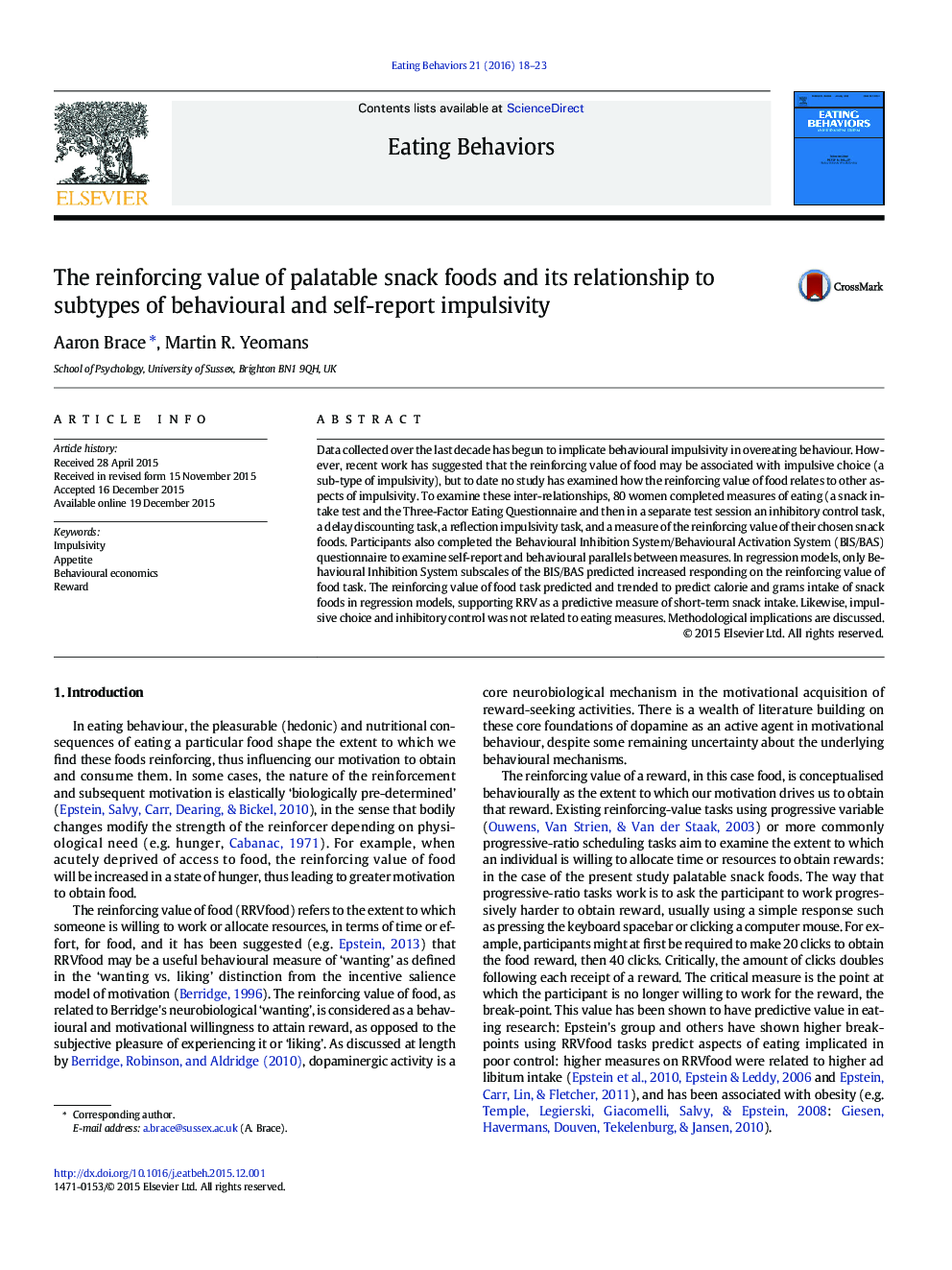| Article ID | Journal | Published Year | Pages | File Type |
|---|---|---|---|---|
| 906224 | Eating Behaviors | 2016 | 6 Pages |
•80 female participants completed an ad libitum taste test of snack foods before a second session in which they completed the Three-Factor Eating Questionnaire (TFEQ), 3 impulsivity measures and measure of food reinforcement, and the BIS/BAS.•Impulsivity was unrelated to RRV•RRV predicted grams consumed in the ad libitum intake test, demonstrating the RRV as a useful laboratory measure of short-term snack intake.
Data collected over the last decade has begun to implicate behavioural impulsivity in overeating behaviour. However, recent work has suggested that the reinforcing value of food may be associated with impulsive choice (a sub-type of impulsivity), but to date no study has examined how the reinforcing value of food relates to other aspects of impulsivity. To examine these inter-relationships, 80 women completed measures of eating (a snack intake test and the Three-Factor Eating Questionnaire and then in a separate test session an inhibitory control task, a delay discounting task, a reflection impulsivity task, and a measure of the reinforcing value of their chosen snack foods. Participants also completed the Behavioural Inhibition System/Behavioural Activation System (BIS/BAS) questionnaire to examine self-report and behavioural parallels between measures. In regression models, only Behavioural Inhibition System subscales of the BIS/BAS predicted increased responding on the reinforcing value of food task. The reinforcing value of food task predicted and trended to predict calorie and grams intake of snack foods in regression models, supporting RRV as a predictive measure of short-term snack intake. Likewise, impulsive choice and inhibitory control was not related to eating measures. Methodological implications are discussed.
